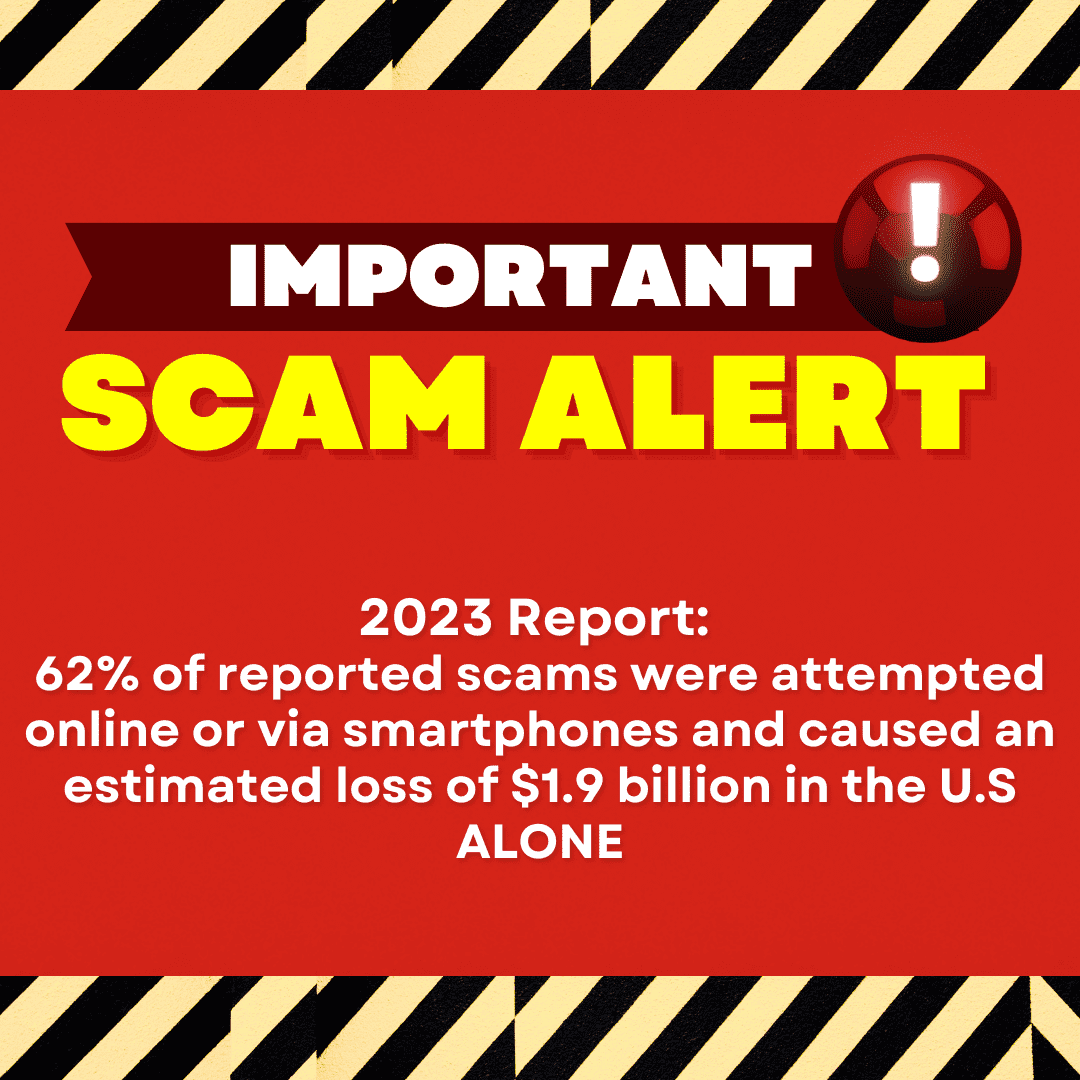Cryptocurrency has become one of the most talked-about topics in recent years. However, with the rise of this new digital asset class come serious risks. The crypto market is rife with fraud and other dangers that individuals need to be aware of. In this article, we will explore the dark side of crypto, particularly focusing on fraud, and provide tips on how to protect oneself from falling victim to scams.
Whether you’re a seasoned crypto investor or a newcomer, it’s essential to stay informed about the potential risks and challenges associated with this market. Read on to learn more about the various types of crypto scams, the regulatory challenges faced by the industry, the risks of investing in cryptocurrencies, and how to protect yourself from fraud. We will also discuss the role of education in preventing crypto scams, legal actions taken against scammers, the future of crypto market regulation, and common misconceptions surrounding crypto fraud.
Understanding Cryptocurrency Fraud
Cryptocurrency fraud has become an increasingly prevalent issue in the digital currency market. With the rise of cryptocurrencies, fraudulent activities have also become more sophisticated and widespread. In this section, we will explore the various types of crypto scams and provide guidance on how to identify and avoid falling victim to these fraudulent activities.
Types of Cryptocurrency Scams
Phishing Scams: These scams often come in the form of emails or messages that appear to be from legitimate cryptocurrency exchanges or wallets. They usually contain a link that directs the victim to a fake website or login page that steals their personal information and cryptocurrency.
Ponzi Schemes: In this type of scam, investors are promised high returns on their investment in a short period of time. The returns are often paid using the money from new investors, rather than from actual profits, and the scheme eventually collapses, leaving investors with significant losses.
Fake ICOs: Initial Coin Offerings (ICOs) are used by cryptocurrency startups to raise funds by issuing new digital tokens. However, scammers may create fake ICOs to trick investors into investing in a non-existent project or a project that has no real potential for success.
How to Identify and Avoid Crypto Scams
One way to avoid falling victim to crypto scams is to conduct thorough research into any cryptocurrency investments or activities. Avoid investing in projects or opportunities that promise unrealistic returns or have unclear objectives.
It’s also important to be vigilant when receiving unsolicited messages or emails promoting cryptocurrency investments or opportunities. Always double-check the legitimacy of the sender and the information provided, and avoid clicking on links or downloading attachments from unknown sources.
When using cryptocurrency exchanges or wallets, ensure that you use strong passwords and enable two-factor authentication to protect your account. Only use reputable exchanges and wallets that have a track record of security and transparency.
Lastly, if you suspect that you have fallen victim to a crypto scam, report it to the relevant authorities and seek professional advice.
Regulatory Challenges in the Crypto Market
The cryptocurrency market operates with a level of anonymity and decentralization that traditional financial markets do not. While these features may be appealing to some investors, they also pose significant regulatory challenges.
One of the biggest challenges regulators face is the lack of standardized regulations across different jurisdictions. As cryptocurrencies are traded across borders, it can be difficult for regulators to monitor and regulate these transactions effectively. This lack of oversight can lead to illegal activities going unchecked, including money laundering and terrorist financing.
International Jurisdiction Issues
Another challenge faced by regulators is international jurisdiction issues. In many cases, it can be difficult to prosecute individuals or companies that engage in fraudulent activities across different countries. This can lead to a lack of accountability and embolden scammers to continue their fraudulent activities.
Regulators are also grappling with the pace of technological innovation in the crypto market. As new cryptocurrencies and blockchain-based projects emerge, regulators must keep pace with these developments to ensure that they are not being used for illegal purposes. This can be a significant challenge, particularly as the market evolves rapidly.
The Risks of Investing in Cryptocurrencies
Investing in cryptocurrencies can be a lucrative opportunity, but it also comes with significant risks. Here are some of the main risks to consider before investing:
| Risk | Description |
|---|---|
| Market Volatility | Cryptocurrency prices can fluctuate wildly in short periods of time, making it a high-risk investment option. |
| Lack of Investor Protection | Investors in the crypto market have little to no legal protection and are susceptible to fraud and scams. |
| Fraudulent Schemes | The crypto market attracts scammers looking to take advantage of unsuspecting investors through fake exchanges, Ponzi schemes, and other fraudulent activities. |
| Regulatory Uncertainty | Regulations surrounding cryptocurrencies are still unclear in many countries, leaving investors without clear guidelines or recourse in the event of fraud or loss. |
| Storage and Security | Keeping crypto assets secure can be challenging, with risks of hacks, theft, and loss of private keys. |
Despite these risks, there are ways to mitigate them. One strategy is to only invest what you can afford to lose and to diversify your portfolio with other investment options. It is also essential to conduct thorough research before investing in any cryptocurrency or exchange.
Additionally, it is important to keep your assets secure by storing them in trusted wallets and enabling two-factor authentication. Always stay vigilant and be skeptical of any investment opportunities that seem too good to be true.
The Risks of Investing in Cryptocurrencies: Tips to Remember
- Invest only what you can afford to lose.
- Diversify your portfolio with other investment options.
- Conduct thorough research before investing in any cryptocurrency or exchange.
- Keep your assets secure by storing them in trusted wallets and enabling two-factor authentication.
- Stay vigilant and be skeptical of any investment opportunities that seem too good to be true.
Protecting Yourself from Crypto Scams
As the crypto market continues to grow, so do the risks associated with investing in digital assets. Here are some practical ways to protect yourself from crypto scams:
- Choose a secure wallet: A good wallet will not only allow you to securely store your digital assets but also provide an extra layer of protection against hacking attempts. Look for wallets that support two-factor authentication and offer offline storage options.
- Enable two-factor authentication: Two-factor authentication is a must for securing your crypto accounts. This helps ensure that only you can access your funds even if someone gets hold of your login credentials.
- Research before investing: Don’t fall for lofty promises of quick profits without doing your research. Take the time to investigate the project and team behind any cryptocurrency or ICO before investing.
- Stay vigilant: Be wary of unsolicited messages or offers promising guaranteed profits, and don’t give in to FOMO (fear of missing out). If it sounds too good to be true, it probably is.
- Protect your personal information: Scammers often use phishing scams to trick individuals into revealing their private keys or login credentials. Always verify the authenticity of any website or email before entering any personal information.
By following these steps and staying informed about the latest scams and tactics used by fraudsters, you can drastically reduce your chances of falling victim to crypto fraud.
The Role of Education in Preventing Crypto Fraud
Education plays a crucial role in preventing crypto fraud. By increasing awareness and understanding of the risks associated with the crypto market, individuals can take proactive measures to protect themselves from scams.
It is important to educate oneself about blockchain technology and how it works. This will help in understanding the potential risks and benefits of investing in cryptocurrencies. Crypto investors need to know how to differentiate between legitimate projects and fraudulent schemes. Staying informed about new developments in the market is also crucial as scams continually evolve and adapt.
People should also be aware of the common red flags of scams, such as offering guaranteed returns or promises of “get-rich-quick” schemes. Further, it is important to conduct thorough research before investing in any crypto project. One should review the whitepapers, team qualifications, and community involvement before deciding whether to invest in a project or not.
Sharing knowledge within the community is also essential. By discussing scams and sharing experiences, we can collectively become more informed and better equipped to identify and avoid fraudulent schemes. Joining online communities and participating in crypto forums can be a great way to share knowledge and stay up to date with the latest trends and developments in the market.
Legal Action Against Crypto Scammers
The rise of crypto scams has led to increased efforts to prosecute those responsible for fraudulent activities. However, legal action against crypto scammers can be challenging due to jurisdictional issues and the lack of standardized regulations.
Law enforcement agencies around the world have taken action against several high-profile crypto scams, such as the OneCoin scheme that defrauded investors out of billions of dollars. In some cases, scammers have been brought to justice and faced severe penalties, including imprisonment and substantial fines.
“Crypto scams are a significant threat, and we take them very seriously. We work closely with other law enforcement agencies to investigate and prosecute these crimes to the fullest extent of the law.” – FBI spokesperson
However, prosecuting crypto fraud can be complicated due to the global nature of the market. In some cases, scammers operate in multiple countries, making it difficult to determine which laws apply. The lack of clear regulations also makes it challenging for law enforcement to identify and prosecute illegal activities.
| Challenges in prosecuting crypto scammers | How it affects legality |
|---|---|
| International jurisdictional issues | Makes it difficult to determine which country’s laws apply |
| Lack of standardized regulations | Makes it challenging to identify and prosecute illegal activities |
The lack of cooperation between nations also exacerbates these challenges and makes it challenging to bring scammers to justice. As the crypto market continues to grow, it is essential to establish clearer regulations to prevent fraudulent activities and protect investors.
Conclusion
Legal action against crypto scammers is vital to protect investors and prevent fraudulent activities. However, jurisdictional issues and the lack of standardized regulations make it challenging to prosecute these crimes effectively. More cooperation between nations and standardized regulations are needed to ensure that scammers are brought to justice and to protect the integrity of the crypto market.
The Future of Crypto Market Regulation
As the crypto market continues to grow and mature, the need for effective regulation becomes increasingly pressing. While some countries have already established regulatory frameworks for cryptocurrencies, others are still struggling to define their stance on the issue. The future of crypto market regulation is therefore uncertain, but there are several potential scenarios that could play out in the coming years.
One possibility is that governments around the world will adopt a more hands-on approach to regulating the crypto market. This could involve creating standardized regulations that apply to all cryptocurrencies, as well as implementing measures to prevent fraud and protect investors. Alternatively, some countries may choose to take a more laissez-faire approach, allowing the market to self-regulate and evolve naturally over time.
Regardless of the approach taken, it is likely that regulation will have a significant impact on the crypto market. For example, increased regulation may lead to a decrease in market volatility, as investors become more confident in the stability of the market. On the other hand, heavy-handed regulation could stifle innovation and limit the potential growth of the crypto industry.
The Role of Governments in Crypto Market Regulation
One of the biggest challenges facing governments in the regulation of the crypto market is the lack of standardized regulations across different countries. Because cryptocurrencies are a global phenomenon, regulations that apply in one country may not be applicable in another. This can create jurisdictional issues, complicating efforts to prosecute crypto scammers and enforce regulations.
Another challenge is the need for cooperation between countries in regulating the crypto market. Because cryptocurrencies are not bound by geographic borders, it is important for countries to work together in order to establish effective regulations and prevent fraud.
The Impact of Regulation on the Crypto Market
One of the primary benefits of effective regulation is the potential for increased investor confidence in the crypto market. By establishing clear guidelines for companies operating within the crypto industry, governments can help to protect investors from fraudulent schemes and other risks. This, in turn, may lead to greater investment in the crypto market, driving growth and increasing the market’s overall stability.
However, there are also potential drawbacks to heavy-handed regulation. For example, excessive regulation could stifle innovation within the crypto industry, limiting the potential for new technologies and applications to emerge. Additionally, regulation could make it more difficult for small startups to enter the market, as they may struggle to meet the regulatory requirements necessary to operate legally.
The Future of Crypto Market Regulation: Building Trust and Stability
Ultimately, the future of crypto market regulation will depend on a variety of factors, including the approach taken by governments around the world, the state of the global economy, and the evolving needs of investors and stakeholders. Regardless of the specific regulatory frameworks that emerge, it is clear that building trust and stability in the crypto market will be a key priority for all stakeholders involved.
By working together to establish clear guidelines and prevent fraud, the crypto industry can continue to grow and evolve, offering new opportunities for investors and companies alike.
Common Misconceptions about Crypto Scams
There are many misconceptions surrounding crypto scams and fraud that can lead to misunderstandings about the technology and its potential. Here are some of the most common misconceptions.
Crypto Scams Are Inevitable
While it is true that the crypto market has been plagued by scams and fraud in the past, this does not mean that it is inevitable. With proper education and awareness, individuals can learn to identify and avoid scams and contribute to creating a safer environment for investment.
All Cryptocurrencies Are Frauds
While some cryptocurrencies have been used for fraudulent activities, it is not fair to assume that all cryptocurrencies are fraudulent. Like any investment, it is important to do your research and only invest in reputable projects that have a clear purpose and vision.
Blockchain Technology Is Inherently Flawed
One common misconception is that the technology underlying cryptocurrencies, blockchain, is inherently flawed and prone to manipulation and fraud. In reality, the technology is secure and decentralized, but it is the people and entities using it that can introduce fraudulent practices.
Crypto Scams Only Target Inexperienced Investors
While inexperienced investors may be more vulnerable to scams, anyone can fall victim to cleverly disguised fraudulent schemes. Scammers often use sophisticated tactics to lure unsuspecting individuals, so it is important to always be vigilant and stay informed.
Crypto Scams Are Easy to Spot
While some scams may be obvious, others can be difficult to detect. Scammers often use official-looking websites and documents, as well as fake news and social media accounts, to trick individuals into investing. It is important to always do your due diligence and thoroughly research any investment opportunity.
Frequently Asked Questions about Crypto Fraud
Here are some common questions and answers related to crypto fraud:
What is crypto fraud?
Crypto fraud is any illegal or deceptive activity within the cryptocurrency market that aims to trick individuals into giving away their money or valuable personal information.
What are some common types of crypto scams?
Some common types of crypto scams include phishing scams, Ponzi schemes, and fake initial coin offerings (ICOs).
How can I protect myself from crypto scams?
To protect oneself from crypto scams, it is important to use secure wallets, enable two-factor authentication, and conduct thorough research before investing. It is also important to stay vigilant and be skeptical of too-good-to-be-true opportunities.
What should I do if I believe I have fallen victim to a crypto scam?
If you believe you have fallen victim to a crypto scam, it is important to report the incident to the relevant authorities and seek legal assistance.
Are all cryptocurrencies fraudulent?
No, not all cryptocurrencies are fraudulent. While there are risks associated with investing in the crypto market, there are also legitimate and valuable crypto assets available.
Is blockchain technology inherently flawed?
No, blockchain technology is not inherently flawed. It is a revolutionary technology that has the potential to transform industries and improve efficiency. However, like any technology, it can be misused by bad actors for fraudulent purposes.
For more information on how to avoid crypto fraud, consult our previous sections on Understanding Cryptocurrency Fraud, Protecting Yourself from Crypto Scams, and Legal Action Against Crypto Scammers.





